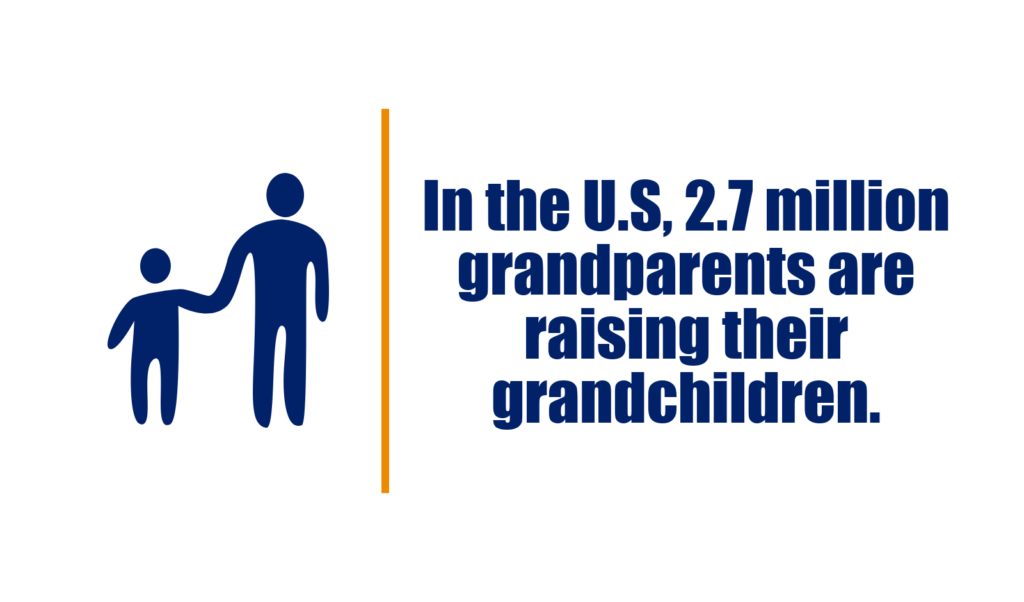An Increasing Number of Grandparents Are Raising Their Grandchildren

According to the 2014 U.S. census, 2.7 million grandparents are raising their grandchildren (up 7% since 2009). A fifth of those grandparents have incomes that fall below the poverty line.
What’s the reason for this sharp increase? While a variety of factors are at play, many sources suggest that the opioid epidemic is to blame. As parents succumb to addiction, their children are left to either enter the foster care system or find a home with a relative. Many grandparents find themselves stepping in to care for their grandchildren, even when they are already struggling financially.

While these grandparents and other relatives step in to fill the parenting gap, the journey is fraught with struggles. Many children who have lacked a stable parental figure have experienced traumas that can lead to emotional and behavioral issues. On top of that, relative caregivers tend to receive less supports and services than non-relative caregivers in the foster care system, according to a report published by the Administration for Children and Families 1. As the report explains:
“[E]ven if a relative caregiver wanted a particular service from an agency, often that service is available only to non-kin caregivers. So, there is a general fallacy that because the kinship caregiver has a blood relationship with the child, agency services and supports are not priority for these families.”
So even when a grandparent caregiver reaches out for services, they can be difficult to obtain. But many caregivers are unaware of what services even exist, so the first barrier is not one of access, but one of awareness. Despite a relative lack of resources for kinship caregivers versus non-relative caregivers, there are a variety of resources available to relative caregivers, depending on need. Grandparent caregivers can receive financial assistance, as well as assistance in getting food stamps, identifying education issues, and accessing healthcare.
Perhaps the most important service initially is legal assistance. As the report cited above explains,
“Too often, grandparents do not have a legal relationship with their grandchildren, largely due to the informal way in which they obtained responsibility for their grandchildren, and their lack of knowledge of its benefits… Another concern is the cost associated with legalizing their relationship, a financial item that has less priority than immediate needs, such as feeding and clothing their grandchildren.”
That’s where Atlanta Legal Aid comes in.
At Atlanta Legal Aid, we are able to help relatives who are raising children in the place of deceased or otherwise absent parents, at no cost to them. We focus on stabilizing the legal relationship between the caregiver and the child through an adoption or custody proceeding, and then work to support families by ensuring that the caregivers are maximizing all of the resources available to the children in their care.
Studies show that children raised by a caring family member feel more safe and secure than their counterparts in foster care. Although grandparents face struggles when confronted with parenting for a second time, they also report a renewed sense of purpose and fulfillment in caring for their grandchildren. When grandparents and other relatives raise their children, the positive results are felt far and wide—both on the children, and on the wider society.

Consider making a donation to your local legal services organization today to help a grandparent adopt their grandchild. If you’re in the metro-Atlanta area, that’s us: Atlanta Legal Aid. Without the support of free legal services, many of these families would be unable to afford guardianship of these children. Make a donation at: https://atlantalegalaid.org/ways-to-give/
1 Grandparents Raising Grandchildren: A Call to Action – Administration for Children and Families, Region IV
2 Assessing the New Federalism: Children in Kinship Care – The Urban Institute